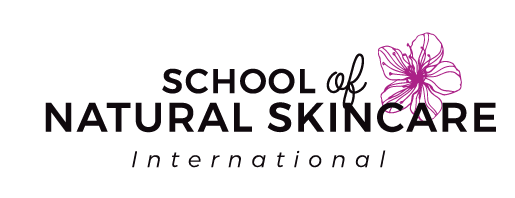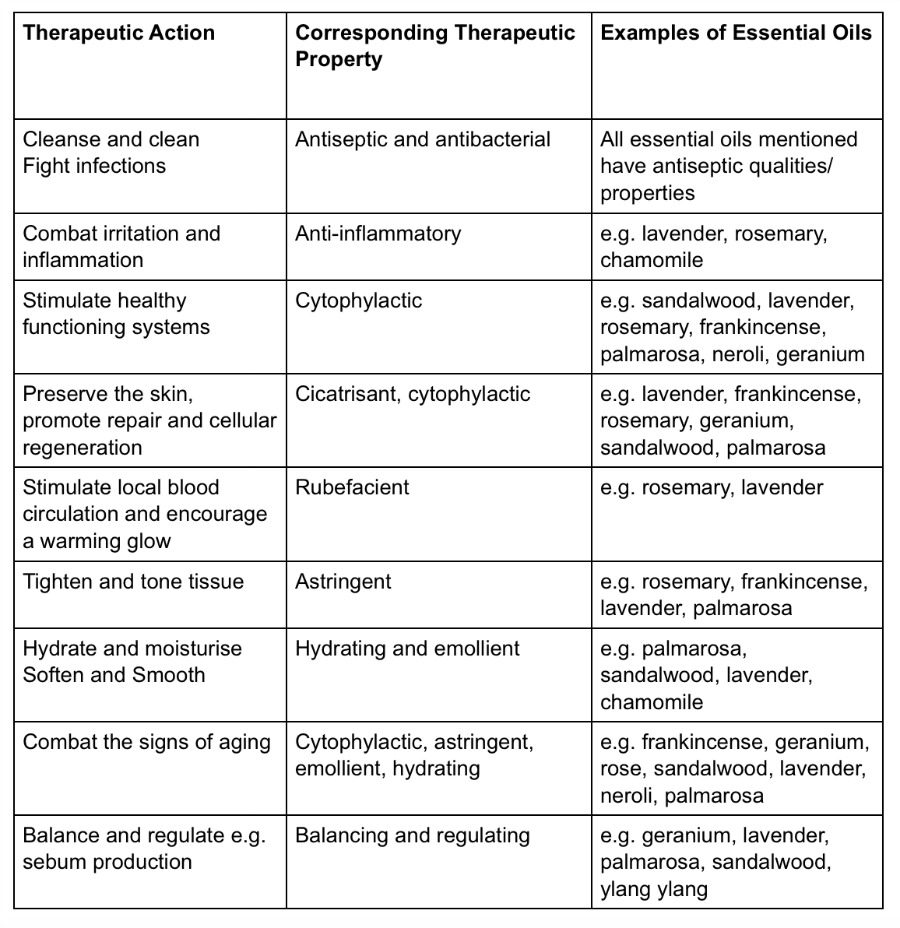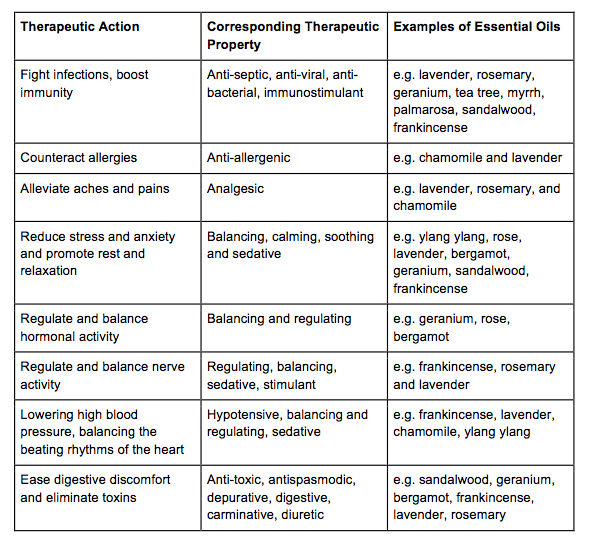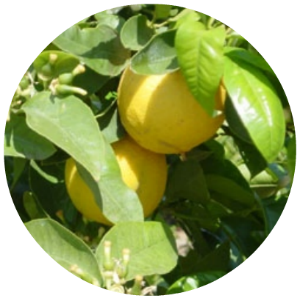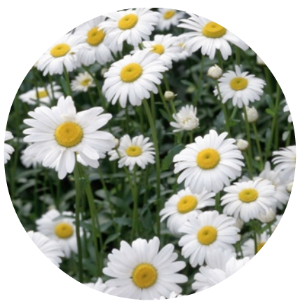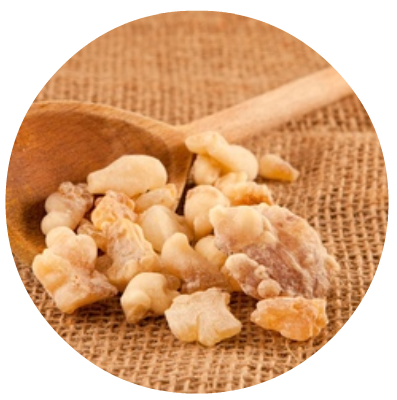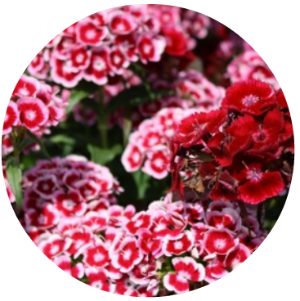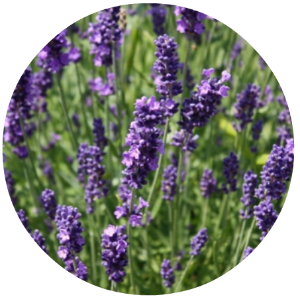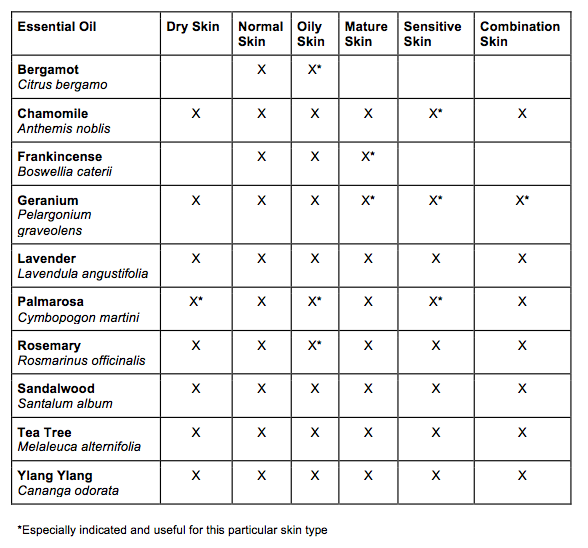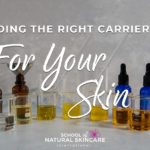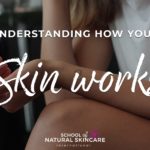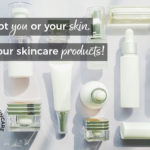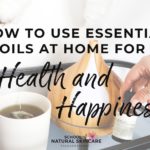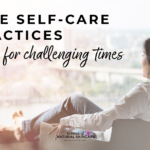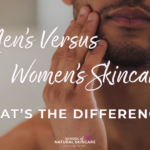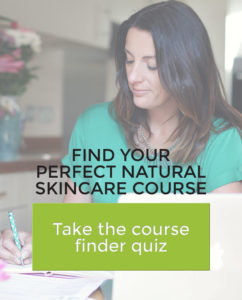With so many essential oils to choose from you are probably wondering:“Which are the best essential oils for skin?”
Here we’ll share the top five essential oils for skin handpicked by our in-house Aromatherapist, Gareth Despres.
In this article we’ll share:
- The triple benefits of using essential oils on the skin.
- Our top five essential oils for skin, which skin types they are best for and why you should use them.
Ready? Let’s get started!
The triple benefits of using essential oils on the skin
Essential oils are natural plant extracts derived through various means (mainly distillation) from plants of all kinds for our enjoyment, health and
As natural chemical compounds, they are made up of chemical constituents which possess wide-ranging therapeutic properties that work with our body to help it to heal, repair and regenerate as well as improve the general functions of organs and entire systems (see figures 1.0 – 1.1 below).
When applied to the skin, essential oils have a triple beneficial action.
1) Essential oils have a direct healing action on the skin
When applied in carrier substance they help our skin to:
- Maintain general health and wellness and improve the general/overall function.
- Regenerate healthy skin cells quickly and efficiently.
- Enhance the barrier repair and protection functions, enabling it to more easily heal and repair itself from irritations and sensitivities, wounds, cuts, bites, stings, sores, and scars.
- Fight infections and kill potentially harmful microbes, stopping the spread of infection.
- Tighten and tone the skin tissue, bringing greater strength and elasticity.
- Soften and smooth, cleanse and clean, hydrate and moisturize, which improves the skin overall health and wellness as well as
look and feel. - Stimulate local blood circulation which encourages a glowing complexion.
- Fight free radicals, delay the signs of premature
aging and soften fine lines and wrinkles.
(See figure 1.0 below.)
2) They help the body to heal from the inside out
The molecules of essential oils are small enough to penetrate the
When they do, either they are used by the skin cells themselves, or they pass through into the bloodstream where they are transported around our body to help maintain healthy functioning organs (eg heart, lungs, stomach, kidney, liver, etc) and systems (eg circulatory, respiratory, digestive, nervous, hormones, etc).
In both cases, when absorbed, the chemicals of the essential oils mix with the chemicals of our body to:
- balance, regulate and improve functions
- repair and heal
- fight infections
- kill potentially harmful microbes
- eliminate toxins, and
- affect changes; for example, they may stimulate or sedate the function of an organ or an entire system (see figures 1.0 and 1.1 below).
3) The aroma they provide improves our mood, lifts our spirits and encourages a greater sense of wellbeing
This helps counteract stress, fear, tension, and worry, which, over time, place greater stress and strain on the body, its organs and systems.
When all three actions are combined, essential oils demonstrate wonderful holistic healing powers
Let’s take a more detailed look at how essential oils feed, nurture and nourish our skin.
Essential oils’ direct action on the skin (Figure 1.0)
Essential oils’ action, healing from the inside out (Figure 1.1)
The 5 best essential oils for the skin
These oils have been chosen because of their effectiveness in
Before using any of these oils do check the safety information at the end of this article.
1) Bergamot (Citrus bergamo )
Fragrance: Fruity, fresh, green, sweet and zingy.
Skin type best
Therapeutic actions/benefits: Antiseptic, bactericidal, balancing,
Bergamot is a very useful skin care oil with its antiseptic and disinfectant properties, its fragrant quality, and its lightness of spirit. This makes bergamot
Bergamot FCF is best for the skin.
2) Chamomile (Anthemis noblis/Matricaria chamomilla)
Fragrance: Roman Chamomile (Anthemis
German Chamomile (Matricaria chamomilla) Strong, pungent and herbaceous aroma.
Skin type best
Therapeutic actions/benefits: Anti-inflammatory, anti-allergenic,
3) Frankincense (Boswellia caterii )
Fragrance: Woody, spicy, smoky.
Skin type best
Therapeutic actions/benefits: Antiseptic, antibacterial, astringent,
Helps to heal blemishes, cuts, wounds, burns and scar tissue (antiseptic, antibacterial,
4) Geranium (Pelargonium graveolens)
Fragrance: Pungent, strong, floral, sweet and much like
Skin type best
Therapeutic actions/ benefits: Antiseptic, antibacterial, anti-inflammatory, astringent, balancing,
An agent that regulates hormones (regulating), balances sebum production (balancing), preserves the skin (
Outstanding for oily and acne-prone skin, excellent also for dry skin and very useful for sensitive skin due to its regulating and balancing qualities.
5) Lavender (Lavendula angustifolia )
Fragrance: Sweet, herbaceous, well rounded, floral and earthy.
Skin type best
Therapeutic actions/ benefits: Antiseptic, anti-inflammatory, bactericidal, balancing,
Lavender works hard to heal wounds (antiseptic, vulnerary and disinfectant), has powerful skin-preserving qualities (
The best essential oils for the skin (and each skin type)
Here is a quick chart that summarizes which essential oils to use for which skin types:
Of course, this is just a useful starting place, once you become confident with these oils there are
How to use essential oils safely
We must remember that essential oils are highly concentrated chemical compounds, which means:
- They must never be applied neat to the skin and must always be diluted in a carrier substance eg carrier/vegetable oil.
- They should be kept out of reach of children and pets and stored in a cool, dark and dry place.
- They should not be ingested and contact with the eyes must be avoided.
- They are flammable.
- They only need to be used (and should only ever be used) in very small amounts eg 1% – 2% – their potency is high so a little goes a long way and the more you use the greater the risk of irritation/sensitivity.
- Each essential oil carries some safety data called a contraindication which must be checked before use.
At this point, it is also important to recognise that essential oils are not a substitute for conventional medical treatment and where symptoms exist and persist, a GP must be consulted.
They do, however, complement conventional treatment extremely well and are used to great effect to ‘maintain’ and ‘improve’ healthy, happy and radiant skin, minds, bodies and spirits.
In conclusion:
Essential oils are a source from nature that
By using them not only do we get significant
Using essential oils is also a hugely empowering and rewarding process because many are inexpensive, easy to obtain, readily available and, when you know which ones to work with as well as
Enjoy!
Post by Gareth Despres, IEB certified Aromatherapist and Director at the School of Natural Skincare.
Download your free Natural Beauty Recipe Book!
We'd love to help you get started with making your own skincare products - products that are natural, safe and effective!
Discover our favourite recipes for:
- Frankincense Anti-Aging Facial Serum with Coenzyme Q10
- Lavender and Geranium Rejuvenating Facial Serum
- Protective Winter Time Hand Cream
- Orange and Ylang Ylang Facial Moisturizer for Dry Skin
- Grapefruit and Orange Stretch Mark Body Butter
- Soothing and Moisturizing Facial Mist
- and more!
Plus discover natural emulsifiers and preservatives, essential oils and the equipment you need to get started!
